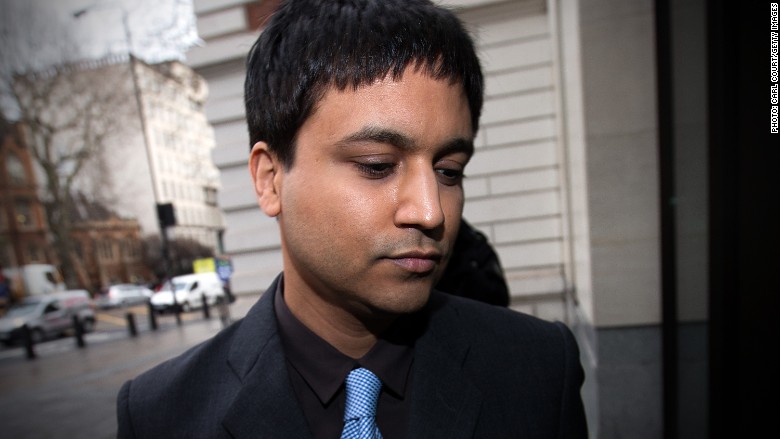
A trader who authorities say caused the 2010 flash crash while trading from his parents house in London is one step closer to standing trial in the U.S.
A judge at Westminster magistrates court in London ruled Wednesday Navinder Singh Sarao can be extradited to the U.S.
He is set to face 22 charges related to the stock market meltdown, which temporary wiped out around $1 trillion in market value in just a few minutes.
Federal authorities have charged Sarao, 36, with manipulating the stock market, saying he was "at least significantly responsible" for triggering the May 2010 crash.
Prosecutors said he flooded the market with large amounts of sell orders for futures contracts, creating the illusion of heavy supply and pushing prices down.
According to the charges, he then canceled most of the orders before they were executed. Prosecutors said he placed the orders to fool the market, never intending to go ahead with them. This practice is called "spoofing" and is illegal in the U.S.
Authorities said Sarao made nearly $9 million from the crash. The Dow fell almost 1,000 points in a matter of minutes before bouncing back.
Related: This isn't the first U.S. market 'glitch'
Sarao didn't stop trading. He allegedly made about $40 million trading from his parents' house in the London suburbs between 2010 and 2014.
He was arrested in April last year and his assets were frozen. His legal team argues that Sarao is innocent, saying he cannot be extradited because his actions are not illegal in the U.K.
He is expected to appeal the decision. The ruling has to be approved by the U.K. Home Secretary before he can be extradited.
The flash crash highlighted the dangers of computer-generated high frequency trading. New rules, including the so-called circuit breakers, came into effect following the crash to prevent similar meltdowns in the future.
